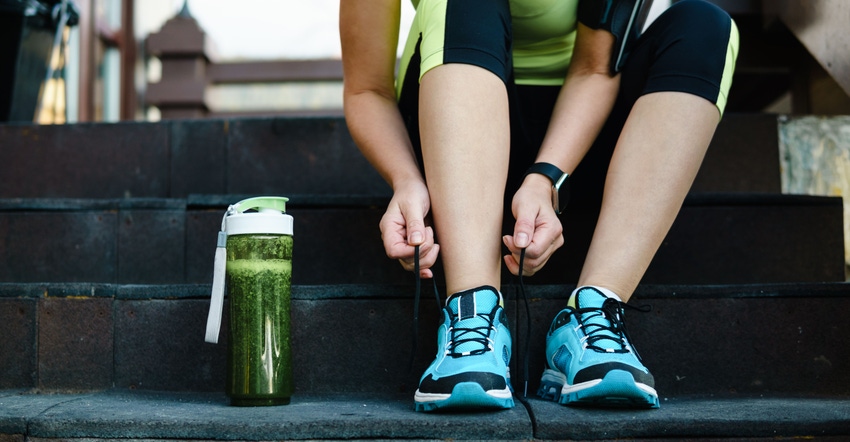The evolution of active nutrition
Many consumers are looking for ways to take care of their overall well-being and not just their waistlines, providing inspiration for product development.

Looking at the research from the FMCG Gurus Global Active Nutrition study (Q3 2019 – 26,000 respondents), a high number of consumers believe they take good care of themselves. More than half (55%) of respondents said they felt they were healthy or very healthy, with only 17% saying they thought they were actually unhealthy. Similarly, when asked about their weight, more consumers (45%) felt they were a “normal” weight than anything else, although this was closely followed by the 32% that considered themselves overweight. Consumers appear to have a generally positive view of their own physical shape, and although some will concede they are overweight, very few say they are obese or underweight. This suggests that products marketed at extremes may be less successful; instead, a better strategy may be to position toward those who wish to make smaller changes and are looking to trim down or tone up.
Despite what seems to be a general level of satisfaction with their health and weight, a significant percentage of consumers say that they have made major changes to their lifestyle in the last two years. 61% say they have looked to improve their overall health, and 60% have started to exercise more. This also applies to diet: almost half of consumers have made active attempts to reduce their sugar intake, and 38% have tried to improve their diets. Consumers appear to understand the link between nutrition, exercise and health, and are looking to put that knowledge into practice in their lives. FMCG Gurus research also shows that consumers are not just looking for short-term gains: 42% reported adopting a more long-term approach to health, and one-third say they have made an effort to educate themselves about their health. A desire to understand health and nutrition reinforces the idea that consumers are choosing to make significant changes with healthy aging as a priority.
When consumers who had improved their diet were asked about motivation, they strongly indicated their primary goal was health. Even though 50% said that they were interested in looking good, that number rises to 52% for maintaining health and 58% for general well-being. Even though appearance is important to many, taking care of their health is a bigger motivator. This is a valuable insight, as it suggests that diet products should not only be aimed at those worried about their looks, but also at those looking to take care of themselves in the long term.
Even though they display a high level of motivation, consumers still feel like a range of barriers hold them back from leading a healthy lifestyle. One of the major issues is that with the hectic, high-stress pace of modern life, many feel that this affects their ability to exercise. 45% report they do not have enough time to exercise, and 42% say they do not have sufficient energy to engage in physical activity. These are issues that conspire to prevent consumers from leading the lifestyle they wish to, and can contribute to other problems: 42% also say that having too many things on their mind is an obstacle, a situation likely to be exacerbated by feeling overwhelmed and rushed. These problems suggest that consumers may be attracted to products that promise to help them with stress or energy levels, putting them in the right frame of mind and giving them a boost to make it easier to hit exercise goals.
Andrew Crofts is senior research analyst at FMCG Gurus. For more information, please contact [email protected].
About the Author(s)
You May Also Like






.png?width=800&auto=webp&quality=80&disable=upscale)